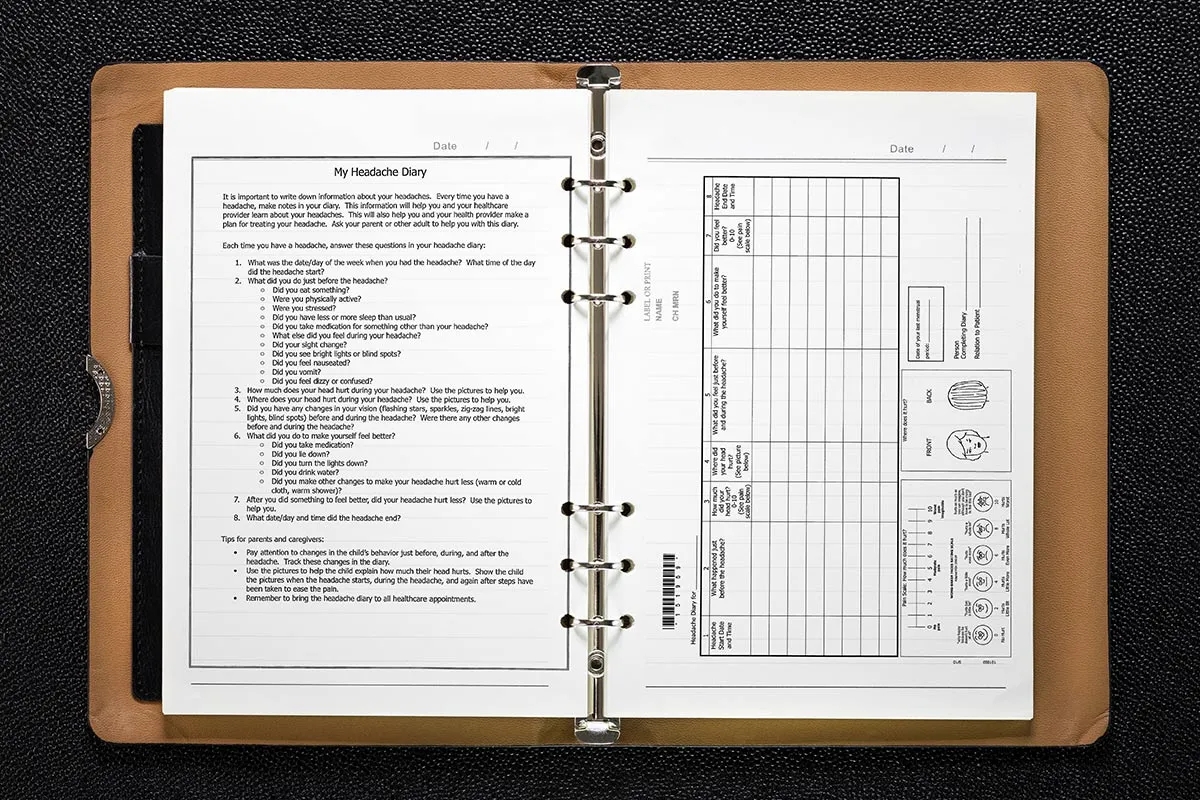Say Goodbye to Headaches. Simple Tips and Treatments That Work for Tension and Stress Headaches
What helps with headaches depends on the type and cause of the pain. Many people suffer from tension headaches, which feel like a tight band around the head. These can be mild to severe and often affect the forehead, temples, or back of the head. If you’re wondering what helps with headaches, the first step is understanding the root cause.
Knowing what helps with headaches also means recognizing tension and stress as major triggers. A tension headache is usually caused by stress, poor posture, eye strain, or lack of sleep. Finding the right solution means exploring natural and medical remedies. Read more about different headache types and their causes.
Tension headaches are among the most common types of headaches and are often misdiagnosed or ignored. People with these headaches usually experience dull, aching pain, especially in the forehead or back of the head and neck. Understanding what helps with headaches like these means taking early steps to reduce the triggers.
Most of the time, lifestyle changes and simple treatments can ease the pain. If you regularly ask yourself what helps with headaches, you may want to look into long-term stress management techniques, posture correction, and eye strain reduction for consistent relief.

While there may not be a complete tension headache cure, there are effective ways to manage the pain. If you want to know what helps with headaches, doctors often suggest rest, hydration, and over-the-counter tension headache medication like ibuprofen or acetaminophen. These can ease the pressure and reduce pain quickly.
Still asking what helps with headaches when medicine doesn’t work? You might benefit from tension headache medicine prescribed by a doctor or long-term solutions like stress management therapy. For lasting relief, it’s best to explore professional headache treatments from specialists.
Some people find that physical therapy or acupuncture also offers a natural tension headache cure. Others benefit from biofeedback therapy, which helps you learn to control physical reactions to stress. Knowing what helps with headaches sometimes means trying a mix of approaches to find what suits your needs best.
Doctors often combine lifestyle changes with medications for better results. While no single tension headache cure works for everyone, a custom plan based on your lifestyle can be the key to fewer and less severe headaches.

Looking for temple headache relief? Many people feel pain in the sides of their heads, often called temple headaches. If you’re wondering what helps with headaches in this area, try placing a cold compress on the temples. Gentle massage and deep breathing can also offer relief.
Another tip for temple headache relief is avoiding bright lights, loud sounds, and screen time when the pain begins. Remember, knowing what helps with headaches includes small lifestyle changes and rest. A calm, dark room and proper hydration may work better than you think.
You can also apply essential oils like peppermint or lavender to the temples for quick temple headache relief. These oils have calming effects and can soothe tense muscles. Remember, staying hydrated and getting enough sleep are simple yet powerful steps in knowing what helps with headaches.
Practicing good posture is another way to prevent headaches that hit the temple area. When you hold your body correctly, there’s less pressure on neck and shoulder muscles, reducing the chances of tension building up.

One way to discover what helps with headaches is by tracking them in a headache diary. Write down when your headaches start, how long they last, and what you were doing before they began. This helps find patterns and triggers.
A headache diary is useful for people with tension headaches because it can show if food, stress, or lack of sleep is the cause. When you review your notes, you’ll see what might help prevent future pain. Learning what helps with headaches is easier when you have a clear history of your symptoms.
Make sure to record your tension headache medication or any home remedies you used and how well they worked. This can help you and your doctor adjust treatment plans if needed.
Tracking your pain can also make your doctor visits more effective. When you understand your patterns, it’s easier to avoid triggers and apply treatments that truly work. Over time, this method provides clear answers on what helps with headaches and what doesn’t.

Changing your routine can show you what helps with headaches caused by stress. A few simple steps like daily walks, regular sleep, and breaks from screens can make a big difference. These changes help reduce stress headache relief needs.
Still wondering what helps with headaches every day? Try yoga, deep breathing, or even talking to someone about your stress. Small adjustments lead to big results, and they’re an important part of any tension headache cure. Healthy habits often bring long-term results and fewer painful days.
Add a regular sleep schedule, stay hydrated, and eat well-balanced meals to prevent forehead headache relief needs. Staying consistent with these habits helps your body stay balanced.
Also, reduce caffeine and avoid skipping meals, both of which are common causes of tension headaches. Knowing how to relieve stress headache pain sometimes means choosing long-term wellness over short-term habits.

Sometimes, what helps with headaches isn’t enough. If your pain becomes frequent or intense, it may be time to talk to a doctor. Medical experts can offer tension headache medication or explore deeper causes like nerve pressure or chronic stress.
You should seek help if your usual methods don’t work and you still wonder what helps with headaches after trying many things. Experts at Pain Treatment MD can provide advanced options like physical therapy, nerve blocks, or lifestyle coaching for long-term relief.
Professional care becomes essential when headaches start affecting your daily life. If you miss work, avoid social events, or feel constant fatigue, it’s time to seek a professional opinion.
Getting the right diagnosis also helps rule out serious conditions like migraines, cluster headaches, or underlying health issues. Remember, discovering what helps with headaches starts with accurate information and personalized care.
Tension headaches happen when your muscles in the head, neck, and shoulders get tight. This can be because of stress, feeling worried, or being anxious. Poor posture, like sitting in a bad position for a long time, can also cause muscle tightness. Not getting enough sleep or staring at screens for too long can cause forehead headache relief needs. Eye strain and muscle tension are common reasons behind these headaches.
If you want to avoid tension headache medication, there are natural ways to feel better. Try deep breathing exercises to relax your body. Use a cold compress on your forehead or temples for quick temple headache relief. Gentle massage of your head, neck, or shoulders can help relax tight muscles. Also, resting in a quiet, dark room can help with relieving headaches. These simple steps help many people find stress headache relief without medicines.
It is normal for some people to get tension headaches often, especially when they feel stressed or tired. But if headaches happen too much or become very painful, you should see a doctor. Keeping a headache diary can help you learn how to relieve stress headache triggers and find what works best for you. If headaches affect your daily life, don’t ignore them.
Yes, poor posture is a common cause of tension headaches. When you sit or stand with a slouched back or bent neck, your muscles work harder to hold your head up. This causes muscle strain and pain, leading to headaches. Good posture can help reduce temple headache relief needs and prevent future headaches.
Doctors often recommend tension headache medicine like ibuprofen or acetaminophen to ease pain. These medicines help reduce the tight feeling and stop headaches from getting worse. Always follow the doctor’s advice when using tension headache medication.

